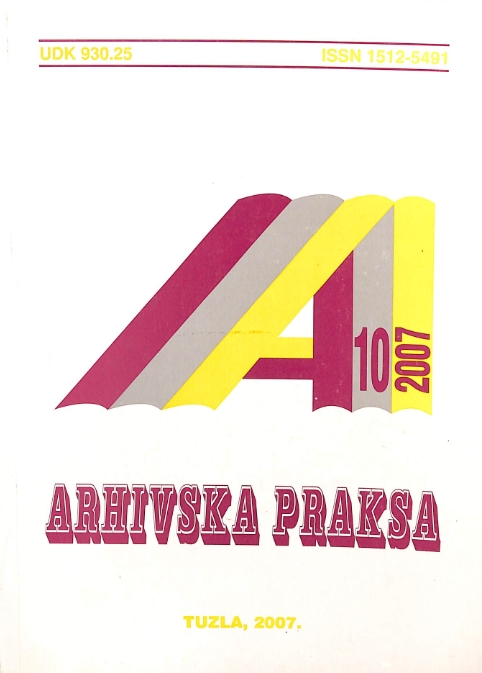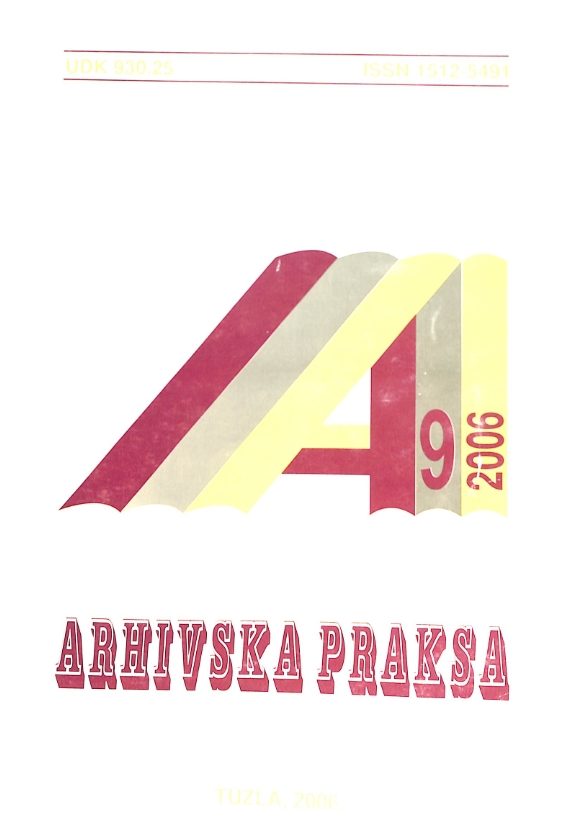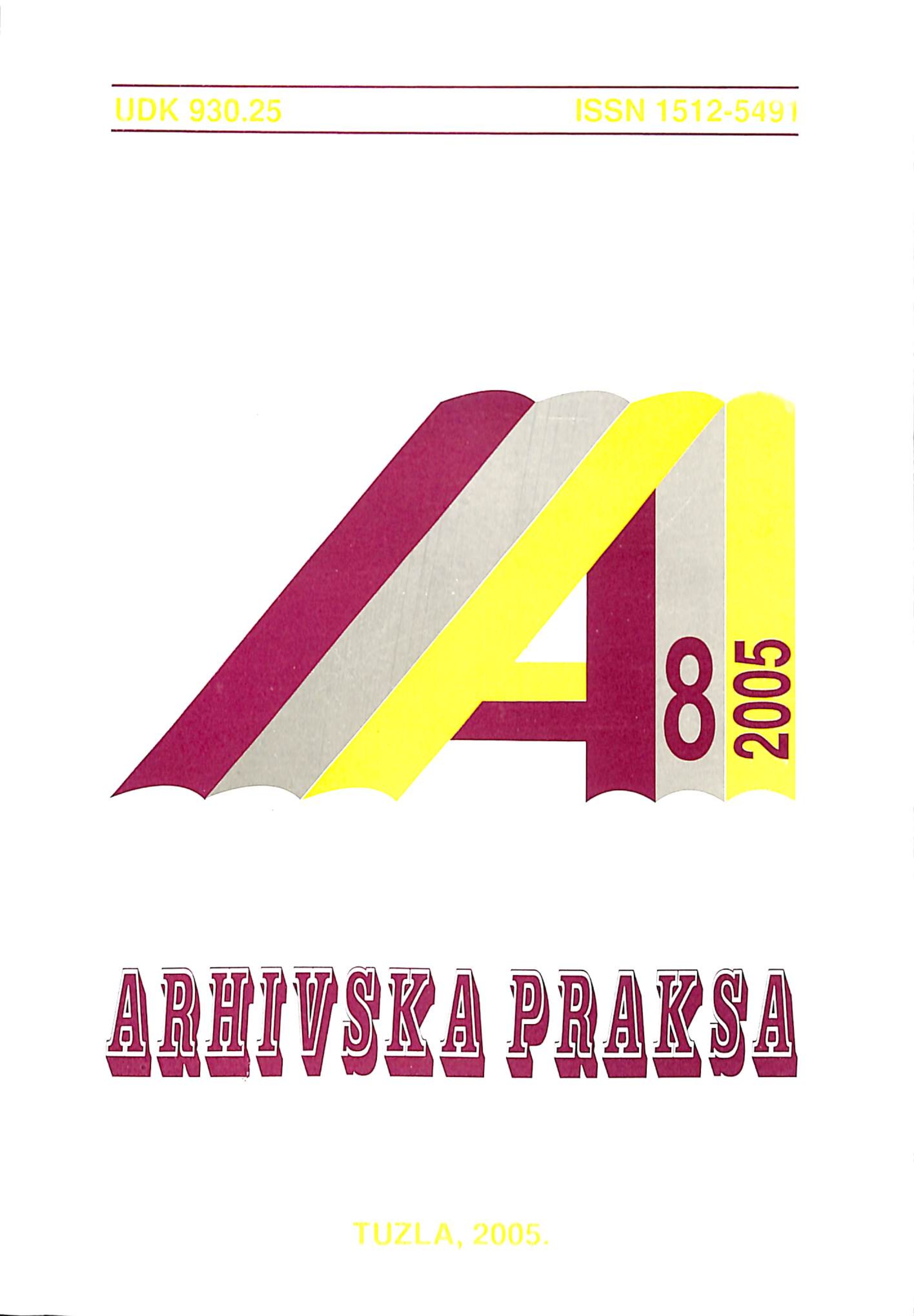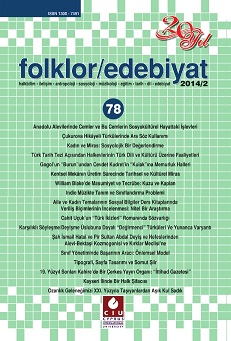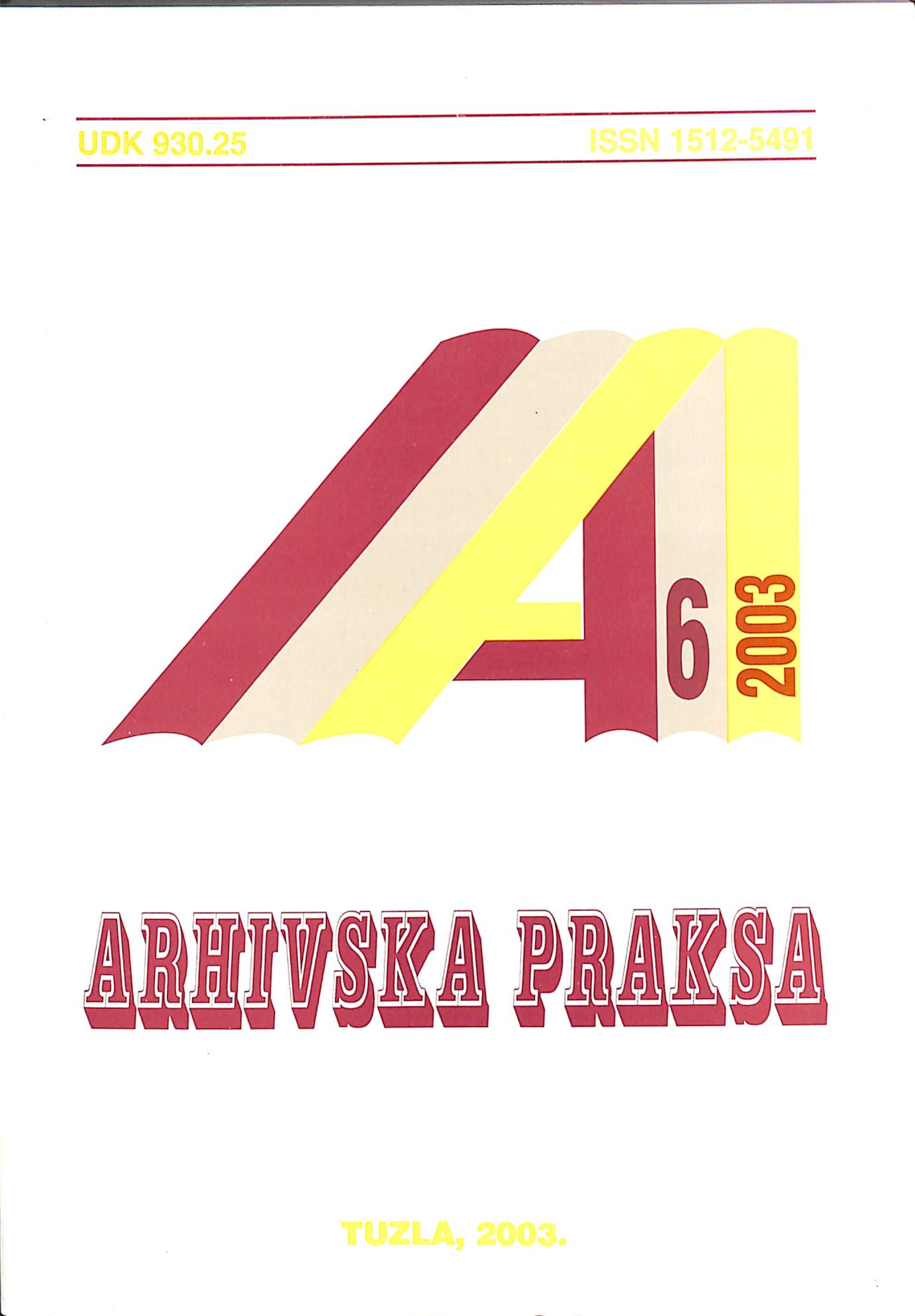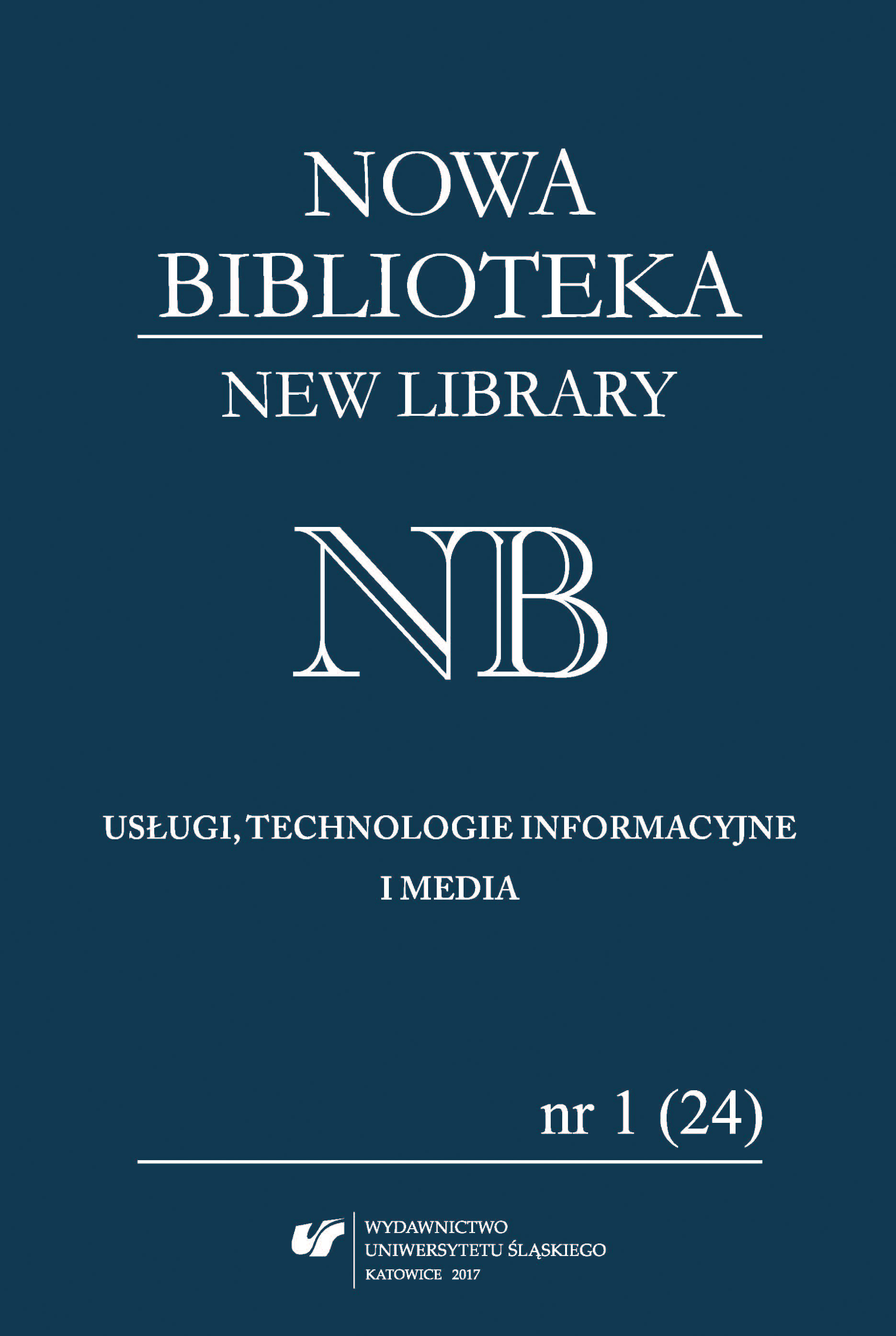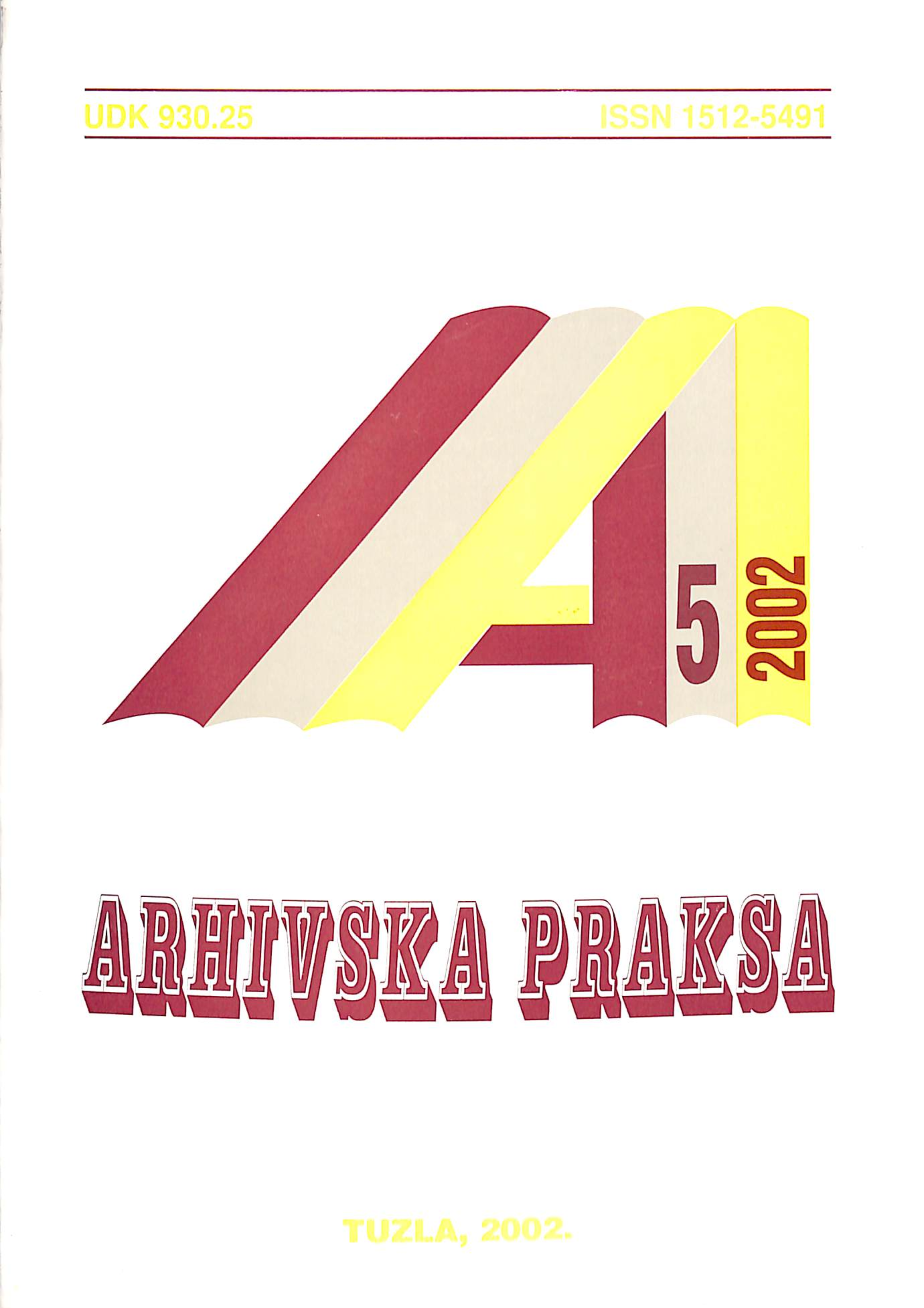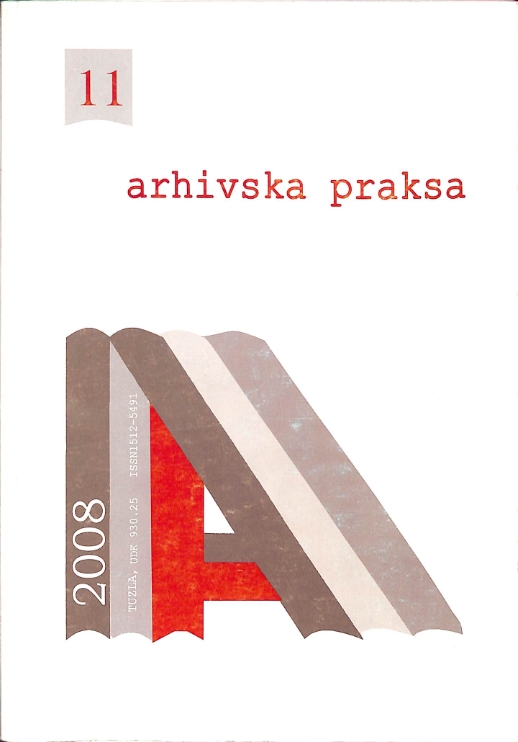
PROBLEMATIKE ARHIVSKE GRAĐE DRUŠTAVA NA PODRUČJU POKRAJINSKOG ARHIVA MARIBOR
Change of archival legislation after year 1991. demands different approach, especially in a case of private makers of archival material. In Regional archive of Maribor we ask ourselves, if we will be successful in the future in protecting private archival material? We are afraid that in practice legislation is hard to follow. Most important thing is to achieve direct contact with makers of private archival material. Only with participation, regular informing and educating we will be successful in preserving important parts of Slovenian cultural heritage. In Regional archive of Maribor we decided to warn, as soon as possible, communities and organizations about our duties and get basic information about their work. We started with a survey. According to previously set criteria we picked those organizations and sent them our queries. We where aware that we can count only on a good will of organizations and their will to cooperate. Data gathered in this way could help us prepare registration programs, which we would suggest to ministry and on a basis of which private material would get status of archival one.
More...
